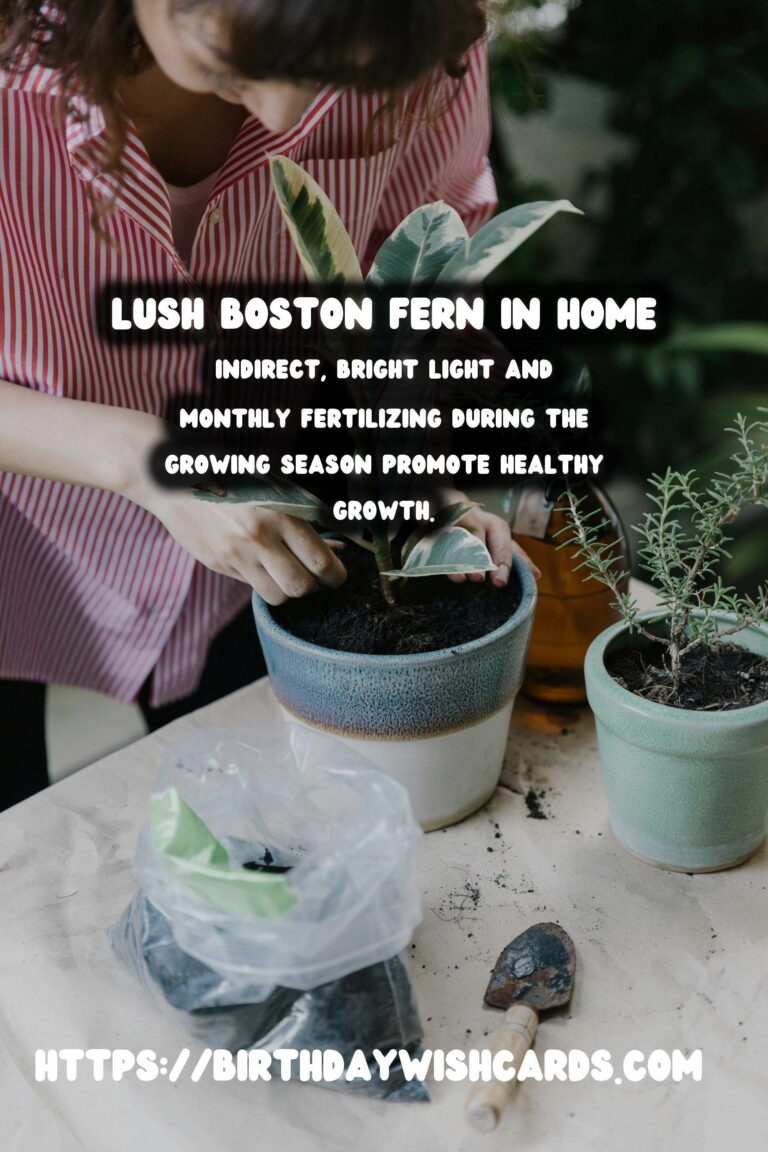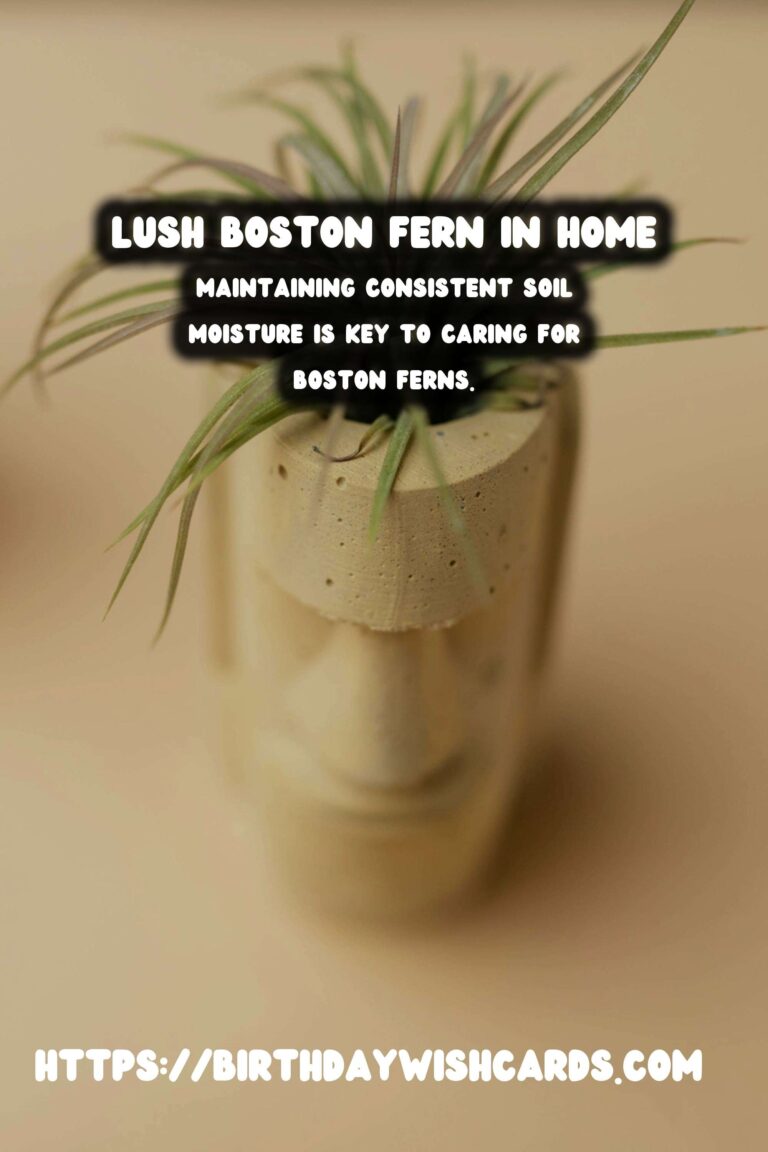
Boston ferns, known scientifically as Nephrolepis exaltata, are popular houseplants cherished for their lush, feathery foliage. To thrive, these ferns require specific care that emphasizes consistent moisture. Understanding their natural habitat and replicating these conditions at home can ensure your Boston ferns grow healthy and vibrant.
Understanding Boston Ferns
Boston ferns are native to tropical and subtropical regions where humidity is high and temperatures are moderate. As epiphytes in their natural habitat, they often grow on other plants and absorb moisture from the air and surrounding environment. This background highlights the importance of humidity and consistent moisture in their care.
Importance of Consistent Moisture
One of the key aspects of caring for Boston ferns is maintaining consistent soil moisture. The soil should be kept evenly moist but not waterlogged, as excessive water can lead to root rot. Using a well-draining potting mix and a pot with drainage holes can help manage moisture levels effectively.
Watering Techniques
Watering Boston ferns requires a balance. Check the top inch of soil; if it feels dry, it’s time to water. Use room temperature water to avoid shocking the plant, and water until it drains from the bottom of the pot. During summer, you might need to water more frequently, while in winter, reduce the frequency but ensure the soil doesn’t dry out completely.
Humidity Considerations
Beyond soil moisture, ambient humidity plays a crucial role. Boston ferns prefer humidity levels of around 50% or higher. If your home is dry, especially in winter, consider using a humidifier or placing a tray of water near the plants. Grouping plants together can also help increase local humidity levels.
Signs of Moisture Stress
Signs that your Boston fern might be experiencing moisture stress include yellowing leaves, browning tips, and wilting. These symptoms can indicate either underwatering or overwatering, so it’s essential to assess the soil moisture and adjust your watering schedule accordingly.
Additional Care Tips
In addition to moisture management, Boston ferns benefit from indirect, bright light. Avoid placing them in direct sunlight as it can scorch their leaves. Fertilize them every month during the growing season with a balanced, water-soluble fertilizer to promote healthy growth.
With the right care, including consistent moisture, your Boston ferns can be a beautiful addition to your indoor garden, offering lush greenery and a touch of nature to your living space.
Boston ferns require specific care that emphasizes consistent moisture. Maintaining consistent soil moisture is key to caring for Boston ferns. Boston ferns prefer humidity levels of around 50% or higher. Signs of moisture stress in Boston ferns include yellowing leaves and browning tips. Indirect, bright light and monthly fertilizing during the growing season promote healthy growth. 









#BostonFerns #PlantCare #Houseplants #Gardening #IndoorPlants




